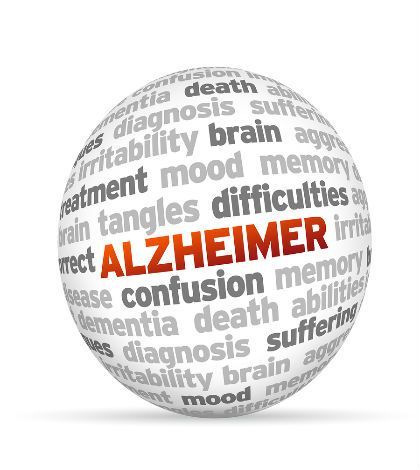Stages of Dementia
Learn about the seven stages of dementia, as outlined by Dr. Barry Reisberg, Director of the Clinical Core of the U.S. National Institute on Aging and Professor of Psychiatry at New York University.

While the manifestation of cognitive impairment varies among individuals grappling with Alzheimer's disease, a discernible pattern of progressive deterioration characterizes the stages of dementia. The journey can be marked by rapid, unmistakable shifts, where individuals swiftly transition from mild short-term memory lapses to vivid auditory or visual hallucinations within a mere six months. Conversely, some endure subtle cognitive challenges over two decades before reaching the advanced stages necessitating round-the-clock care in nursing homes.
The trajectory of declining cognitive function hinges on multiple factors, primarily the patient's overall health and the specific type of dementia at play. Various tests exist to assess cognitive impairment levels accurately and pinpoint the current stage of dementia a patient is traversing.
The Seven Stages of Dementia Global Deterioration Scale
Navigating the Seven Stages of Dementia: The Global Deterioration Scale
Crafted by Dr. Barry Reisberg, esteemed Director of the Clinical Core at the U.S. National Institute on Aging and Professor of Psychiatry at New York University, the Seven Stages of Dementia Global Deterioration Scale offers a comprehensive framework illustrating the common stages of dementia experienced by those diagnosed with Alzheimer's disease and other dementias.
The initial three stages are regarded as "pre-dementia phases," characterized by mild cognitive decline. This phase often involves misplacing objects, struggling to recall once-familiar names, or experiencing difficulty retaining information after reading. While these individuals maintain their orientation in time and place, they might grapple with nascent denial coupled with mild anxiety stemming from burgeoning symptoms.
The subsequent four stages encompass the actual dementia progression. Stage four, termed "moderate cognitive decline," is typified by:
- Impaired memory regarding personal and family history.
- Diminished financial management and rational spending decisions.
- Struggles with acquiring new, complex skills, even with clear instructions.
- Instances of denial and withdrawal in the face of cognitive decline.
- Slight difficulties recalling events from the previous day despite knowing the current day, year, and time.
Stages of Dementia and What to Expect
Moving on to stage five, "moderately severe cognitive decline," individuals require some assistance for comfortable living. Their ability to recall phone numbers and addresses wanes, leading to confusion in distinguishing family names and faces. Although personal hygiene isn't a challenge, selecting appropriate clothing becomes problematic, and distinguishing between matching and mismatched shoes is a common hurdle.
"Severe cognitive decline," marking stage six, witnesses the fading memory of spouses, children, and siblings. This phase involves profound forgetfulness and a lack of awareness about recent experiences. Responses to questions about time, season, and location become inaccurate and confused. The ability to count both backwards and forwards is compromised, while incontinence may arise due to declining organ function.
This stage is accompanied by sleep disturbances, with nighttime wandering stemming from disorientation. The circadian rhythm disruptions and temperature variations, referred to as "sundowning," tend to exacerbate symptoms. Advanced dementia also sees a shift in personality and behavior, encompassing delusions, paranoia, aggression, depression, and anxiety. Obsessive-compulsive tendencies may surface, serving as coping mechanisms for the mounting inability to distinguish rational from irrational behavior.
Culminating in level seven of the Dementia Global Deterioration Scale, "very severe cognitive decline" marks the ultimate stage. Symptoms include:
- Loss of verbal capabilities, leading to muteness or unintelligible speech.
- Incontinence and dependence for fundamental actions like eating and walking.
- Markedly reduced neurological reflexes, often resulting in rigidity or catatonia.
- Rapid weight loss, reflecting the body's declining functionality.
Visual Insights: Brain Imaging Scans
MRI and CT scans provide invaluable insights into the evolving brain architecture across these seven stages of dementia. Observable changes, such as shrinking of the brain's outer layer, the formation of blood clots, enlargement of brain ventricles, and deterioration of blood vessels, underscore the progression of dementia and Alzheimer's disease. These images lay bare the complex transformations transpiring within the afflicted brain.
In the intricate tapestry of human cognition, the stages of dementia unfold as a poignant reminder of both vulnerability and resilience. From the subtle hints of early memory lapses to the profound realms of severe cognitive decline, the journey traverses the Seven Stages of Dementia Global Deterioration Scale, illuminating the evolution of consciousness itself. Amidst the challenges and losses of each stage, the essence of the individual endures, manifesting in behaviors, preferences, and fragments of connection. As medical advancements and compassionate practices intertwine to create a more supportive landscape, these stages not only underline the fragility of memory but also spotlight the enduring strength of the human spirit. This journey invites us to embrace the nuances of cognition, stand alongside those affected, and illuminate the path forward with empathy and hope, ultimately reaffirming our shared humanity.
Our Resources section can help you find the information and tools that you need. We have courses, videos, checklists, guidebooks, cheat sheets, how-to guides and more.
You can get started by clicking on the link below. We know that taking care of a loved one is hard work, but with our help you can get the support that you need.
Click here to go to Resources Section now!
A Person Centered Approach to Dementia Care
Series on Successful Dementia Home Care Tips
Communications with Dementia here
More on Understanding Behaviors
Find a book on Kindle on Dementia Behaviors
Understanding the Early stages of dementia on kindle
http://www.nhs.uk/Conditions/Dementia/Pages/Diagnosis.aspx
http://www.ncbi.nlm.nih.gov/pubmed/7114305
http://www.epigee.org/mental/dementia.html
http://www.alzheimers.org.uk/site/scripts/documents_info.php?documentID=101
http://www.dailystrength.org/c/Dementia/forum/2775949-7-stages-dementia
http://www.health.gov.bc.ca/pharmacare/adti/clinician/pdf/GLOBAL%20DETERIORATION%20SCA
You might also like this article:












